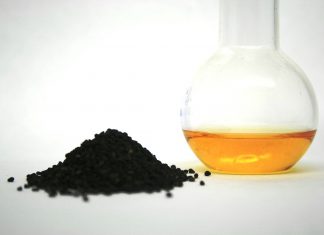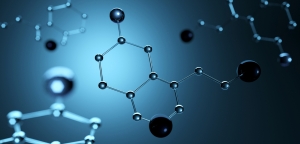The digestive system plays a crucial role in our overall health and well-being. It is responsible for breaking down food, absorbing nutrients, and eliminating waste products from our body. However, factors such as poor diet, stress, and antibiotics can disrupt the delicate balance of our digestive system. Thankfully, there are supplements available that can help support and improve digestive health. In this article, we will delve into the world of digestive supplements and explore the benefits of probiotics, psyllium, and other beneficial supplements.
Understanding the Digestive System
Before we dive into the world of supplements, let's first understand the intricate workings of the digestive system. The digestive system is a complex network of organs and processes that work together to break down food and extract nutrients. It starts from the moment we take a bite and continues until waste products are eliminated.
The process of digestion begins in the mouth, where the teeth and saliva break down the food into smaller pieces. The saliva contains enzymes that start the chemical breakdown of carbohydrates. As we chew, the food mixes with saliva and forms a soft mass called a bolus, which can then be easily swallowed.
Once the food is swallowed, it travels down the esophagus, a muscular tube that connects the mouth to the stomach. The esophagus uses rhythmic contractions called peristalsis to push the food downward, ensuring it reaches the stomach.
Upon reaching the stomach, the food is greeted by gastric juices, including hydrochloric acid and enzymes, which further break down the food into a semi-liquid mixture called chyme. The stomach's muscular walls contract and churn the chyme, aiding in the mechanical breakdown of food and mixing it with digestive enzymes.
From the stomach, the partially digested food enters the small intestine, where the majority of nutrient absorption takes place. The small intestine is a long, coiled tube lined with tiny finger-like projections called villi. These villi increase the surface area of the small intestine, allowing for efficient absorption of nutrients into the bloodstream.
As the food moves through the small intestine, it encounters secretions from the liver and pancreas. The liver produces bile, which is stored in the gallbladder and released into the small intestine to aid in the digestion and absorption of fats. The pancreas secretes enzymes that further break down proteins, carbohydrates, and fats.
After the small intestine, the remaining undigested food enters the large intestine, also known as the colon. The colon's main function is to absorb water and electrolytes from the remaining waste, forming solid stool. The colon is home to trillions of beneficial bacteria, collectively known as the gut microbiota, which play a crucial role in digestion and overall health.
Finally, the waste products, now in the form of stool, are eliminated from the body through the rectum and anus. This process, known as defecation, is controlled by the muscles of the rectum and the urge to have a bowel movement.
The Role of Digestion in Overall Health
Many people underestimate the importance of digestive health and its impact on our overall well-being. A healthy digestive system not only ensures proper nutrient absorption but also plays a key role in our immune system and even our mental health. Digestive issues can lead to a variety of symptoms, ranging from bloating and gas to more severe conditions such as irritable bowel syndrome or inflammatory bowel disease.
When the digestive system is functioning optimally, it efficiently breaks down food into its basic components, such as proteins, carbohydrates, fats, vitamins, and minerals. These nutrients are then absorbed into the bloodstream and transported to various organs and tissues in the body, providing the necessary fuel for growth, repair, and maintenance.
Moreover, the digestive system is closely intertwined with the immune system. The gut-associated lymphoid tissue (GALT), which is a part of the immune system, is located in the walls of the digestive tract. It helps protect the body from harmful pathogens and plays a crucial role in maintaining immune balance.
Furthermore, emerging research suggests a strong connection between the gut and the brain, often referred to as the gut-brain axis. The gut is lined with millions of nerve cells that communicate with the brain through the vagus nerve. This bidirectional communication pathway influences our mood, emotions, and even cognitive function. Therefore, a healthy gut is essential for maintaining optimal mental well-being.
Key Components of the Digestive System
To fully understand the benefits of supplements, it's essential to familiarize ourselves with the key components of the digestive system. These include the mouth, esophagus, stomach, small intestine, large intestine, liver, gallbladder, and pancreas. Each organ has a specific role in the digestion process.
The mouth, as mentioned earlier, is responsible for chewing and mixing food with saliva, initiating the breakdown of carbohydrates. The esophagus transports the food from the mouth to the stomach through peristalsis, ensuring a smooth passage.
The stomach, with its acidic environment and digestive enzymes, further breaks down the food into chyme. The small intestine, the longest part of the digestive tract, is where the majority of nutrient absorption occurs, thanks to its specialized structure and the presence of villi.
The liver, the largest internal organ, produces bile, which aids in the digestion and absorption of fats. The gallbladder stores and releases bile into the small intestine when needed. The pancreas, located behind the stomach, secretes enzymes that break down proteins, carbohydrates, and fats.
Lastly, the large intestine, or colon, absorbs water and electrolytes from the remaining waste, forming solid stool. It also houses the gut microbiota, which help ferment undigested carbohydrates and produce essential vitamins.
Understanding the intricacies of the digestive system allows us to appreciate the importance of proper nutrition and supplementation in supporting its optimal function. By providing the necessary nutrients and supporting the gut microbiota, supplements can play a valuable role in maintaining digestive health and overall well-being.
The Science Behind Dietary Supplements
Now that we have a basic understanding of the digestive system, let's explore the science behind dietary supplements. These supplements are specifically formulated to support and optimize digestive health. They can come in various forms, including capsules, powders, and liquids, and contain a range of ingredients such as vitamins, minerals, herbs, and enzymes.
How Supplements Interact with the Digestive System
Dietary supplements interact with the digestive system in different ways, depending on their composition. Some supplements, like probiotics, introduce beneficial bacteria into the gut, restoring the balance of gut flora and promoting proper digestion. Others, like psyllium, work as a natural laxative, adding bulk to the stool and easing bowel movements.
The Bioavailability of Supplements
When it comes to supplements, bioavailability is a crucial factor to consider. Bioavailability refers to the extent to which a nutrient or compound is absorbed and utilized by the body. Different supplements have varying degrees of bioavailability, and factors such as formulation, accompanying nutrients, and individual differences can influence their effectiveness.
Probiotics and Digestive Health
Probiotics have gained significant attention in recent years for their potential benefits in promoting digestive health. These live bacteria and yeasts are considered "good" bacteria that can help restore the balance of gut flora.
The Importance of Gut Flora
Gut flora, also known as the gut microbiota, refers to the trillions of bacteria that reside in our digestive system. These bacteria play a vital role in maintaining a healthy gut and aiding in digestion. Imbalances in gut flora can result in digestive issues, and probiotics can help restore this delicate equilibrium.
Probiotics: More than Just Yogurt
While yogurt is a well-known source of probiotics, there are many other probiotic-rich foods and supplements available. These supplements often contain strains of bacteria like Lactobacillus and Bifidobacterium, which have been extensively studied for their potential benefits in supporting digestion and boosting the immune system.
Psyllium and Its Role in Digestion
Another popular supplement known for its digestive benefits is psyllium. Derived from the husks of the Plantago ovata plant, psyllium husk powder is a natural source of dietary fiber.
The Power of Fiber
Fiber plays a crucial role in promoting healthy digestion. It adds bulk to the stool, making it easier to pass through the digestive tract. Additionally, fiber can help regulate bowel movements, prevent constipation, and promote a feeling of fullness, which can aid in weight management.
Psyllium: A Natural Solution for Digestive Issues
Psyllium supplements are an excellent source of soluble fiber, which absorbs water and forms a gel-like substance in the intestines. This gel-like substance can help soften the stool, ease constipation, and support regular bowel movements. Psyllium can also help regulate cholesterol levels and promote heart health.
Other Beneficial Supplements for Digestive Health
In addition to probiotics and psyllium, there are other supplements that can provide significant benefits for digestive health.
Prebiotics: Feeding the Good Bacteria
Prebiotics are a type of fiber that cannot be digested by humans but serve as food for the beneficial bacteria in our gut. By consuming prebiotics, we can promote the growth and activity of these bacteria, ultimately supporting digestive health.
Digestive Enzymes: Boosting Nutrient Absorption
Digestive enzymes are substances that help break down food into smaller, more easily absorbable molecules. These enzymes are naturally produced by our body, but some individuals may require additional supplementation to support proper digestion and nutrient absorption.
In conclusion, supplements can play a vital role in supporting digestive health and overall well-being. Whether it's probiotics, psyllium, prebiotics, or digestive enzymes, these supplements can help restore balance to the digestive system and alleviate a variety of digestive issues. However, it's crucial to choose high-quality supplements, consult with a healthcare professional, and maintain a healthy lifestyle to ensure optimal digestive health.






